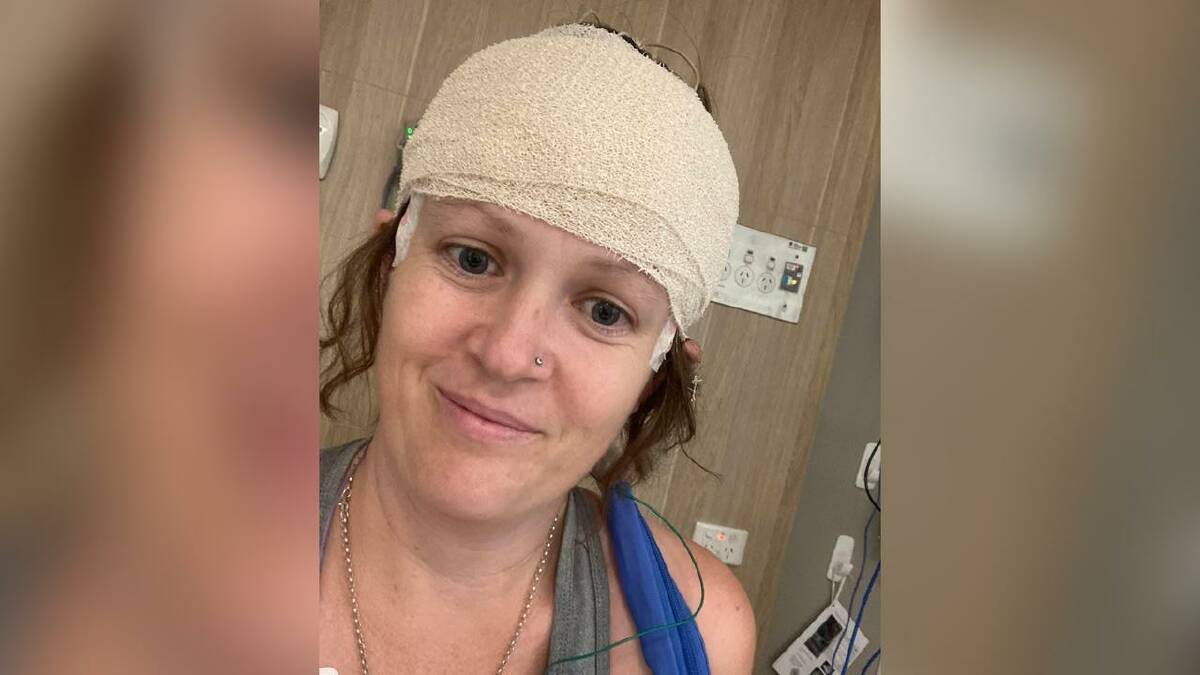
After years of anxiety living with epilepsy Rosie Connell-Moller got her life back on track thanks to a game-changing implant that sends signals to her brain to calm it down.
Subscribe now for unlimited access to all our agricultural news
across the nation
or signup to continue reading
See subscription optionsThe 40-year-old is now a full-time nurse in Brisbane and proud of regaining her driver's licence exactly 20 years after her first seizure at age 19.
"I had the 'grand mal' seizure which is everything happening at once, the falling, the shaking, the biting of the tongue," she tells AAP.
"It's the one that freaks you out if you're to see it on a movie, even more in person."

Now known as a tonic-clonic seizure, she had a second a week later and was diagnosed with epilepsy.
It sparked years of different medications and treatments while going through a tough time in her life.
Her marriage was breaking up, she had two young children to care for, her hopes of a career looked bleak and she lost touch with friends, which depressed her.
"Because of everything going on with that, my seizures were heightened," she says.
Like many others with epilepsy Ms Connell-Moller was subject to a vicious cycle: her anxiety prompting seizures and the "scary" seizures prompting more anxiety.
A survey of 7800 Australians with epilepsy has found some 20 per cent live with depression, almost twice as many as within the general population. About 15 per cent also live with an anxiety disorder.
A majority of respondents nominated stress (62 per cent) and sleep deprivation and exhaustion (55 per cent) as top seizure triggers while just over half reported low-to-average quality of life.
The impact of the condition is felt more by those with drug-resistant epilepsy where anti-seizure medication alone can't bring adequate seizure control.
It affects up to 30 per cent of people living with epilepsy.
Ms Connell-Moller, who has drug-resistant epilepsy, is still on five medications but was fortunate to get onto VNS therapy in 2020.
This is where a Vagus Nerve Stimulation device is implanted under the skin in the chest to send electrical impulses to the vagus nerve in the neck, which then sends signals to the brain to reduce the frequency and severity of seizures in drug-resistant cases.
The therapy has been a game-changer for Ms Connell-Moller who says it's like a pacemaker that "helps to calm my brain down".

The therapy allowed her to begin nursing studies and she now works full-time shifts and has bought her own home.
Pushing to get her driver's licence back took a bit more effort, with further tests in hospital to show seizures were still happening but only for seconds at a time, not causing any loss of awareness.
Ms Connell-Moller's first seizure fell on May 25 and exactly 20 years later she got her licence back.
Her advice to others with epilepsy is to educate themselves about the condition and bug their GPs and specialists about trying different treatments, which led her to VNS therapy.
She also advises having a support system of other people with epilepsy.
Epileptic seizures create fear, anxiety and depression, and affect quality of life, according to Epilepsy Action Australia chief executive Carol Ireland.
"A person is quite worried about what's going to happen and how they might be perceived," she says.

Her first message to those with the condition is to make sure they are seen at a comprehensive epilepsy centre in a major hospital, with people often not knowing other treatment options are available.
Secondly, ensuring that they know about the condition and understand different self-management techniques to recognise triggers for their seizures and take steps to avoid them.
Associate Professor Lata Vadlamudi, a neurologist specialising in epilepsy at Royal Brisbane and Women's Hospital, says seizures are just the visible part of a much larger issue.
"Beneath the surface lie critical and often overlooked challenges - mental health struggles, stigma, reduced productivity and employment, diminished quality of life and most tragically, an increased risk of death," she says.
"To break the 'vicious life loop' so many people with epilepsy experience, we need to provide holistic care and support across multiple areas.
"That's what the survey findings make clear."
National Epilepsy Line 1300 374537.
Lifeline 13 11 14
beyondblue 1300 22 4636
Australian Associated Press

